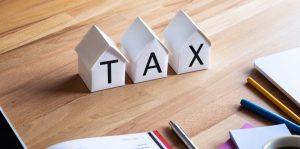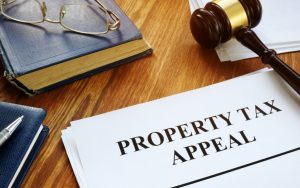NJ Property Taxes Are Skyrocketing – What Else is New?

The “Top 20” New Jersey towns, at least when it comes to increases in property taxes, were the subject of this report, which indicates that the “lowest” highest increase was 6.0% in Union Beach, Monmouth County, while the undisputed “winner” was the City of Jersey City, which experienced increases of a whopping 33%.
How is it possible that property taxes can increase so much in one year, especially when a TWO (2%) percent annual cap was created by the State Legislature in a bill signed into law in 2010? That law provided a host of exemptions such as cost increases for health care, pensions, debt service, states of emergency, and school-related costs. It also evaluates increases over three years, so that a local government that increases taxes by less than 2 percent in one year and can exceed the 2 percent cap so long as the average is 2 percent or less.
School costs seem to be the leading culprit, as large school districts such as the Jersey City school district have experienced both increased costs and reductions in statewide aid, which has created shortfalls that are likely exacerbated by the fact that many urban centers, including Jersey City, offer tax incentives in local redevelopment projects known as “PILOTs” (payment in lieu of taxes). PILOT payments generally tend to shortchange contributions to local school budgets that are traditionally made and required by property tax payments.
It should not be a surprise to anyone that New Jersey has the highest property taxes in the nation. This well-known fact was the subject of an excellent summary by Susan Livio of NJ.com several years ago, where she identified seven reasons why we are the “best” state at having high property taxes:
- We are densely populated, making service costs higher;
- We have high labor costs, including labor for public sector employees:
- We are one of the most expensive states in which to live:
- Property taxes fund most expenses in New Jersey, unlike other states which use income or sales taxes to pay for the same expenses;
- We have LOTS of local governments – more than 560 towns and about 600 school districts. That’s a lot of payroll and other related expenses;
- Public worker pensions are significant – see item #5 above;
- While we have great public schools, they are expensive to run and keep great.
So since our state is the king of high property taxes, what can a taxpayer do to try and reduce their taxes? There are basically two solutions. One way is through voting – by electing new leaders at all levels of government – state, county, and local – who are sensitive to these issues, it is possible that budgetary spending can be curbed over time, thereby reducing the amount of money that needs to be raised to pay for all these expenses. But this solution has proven to be an evasive one, as even those elected leaders who have promised and even implemented budget cuts haven’t been able to dethrone New Jersey as the king of high property taxes.
The most practical solution for New Jersey taxpayers is to find out whether they are paying more than their fair share of property taxes by examining their property tax assessment each year to see if they may qualify for a reduction through the property tax appeal process.
In most New Jersey towns, the deadline to file a property tax appeal for 2023 is April 3, which is just around the corner. McKirdy, Riskin, Olson & DellaPelle, P.C.’s experienced attorneys help New Jersey commercial, industrial, special purpose, and residential property owners 
You can learn more about whether you might qualify for a reduction in your New Jersey property tax bill by downloading our white paper which is available here. Or you can send us an email at info@mrod.law and we’ll provide a complimentary evaluation of your property tax assessment to see whether you might be entitled to a reduction. But don’t wait, as the April 3 deadline is strictly construed!!







